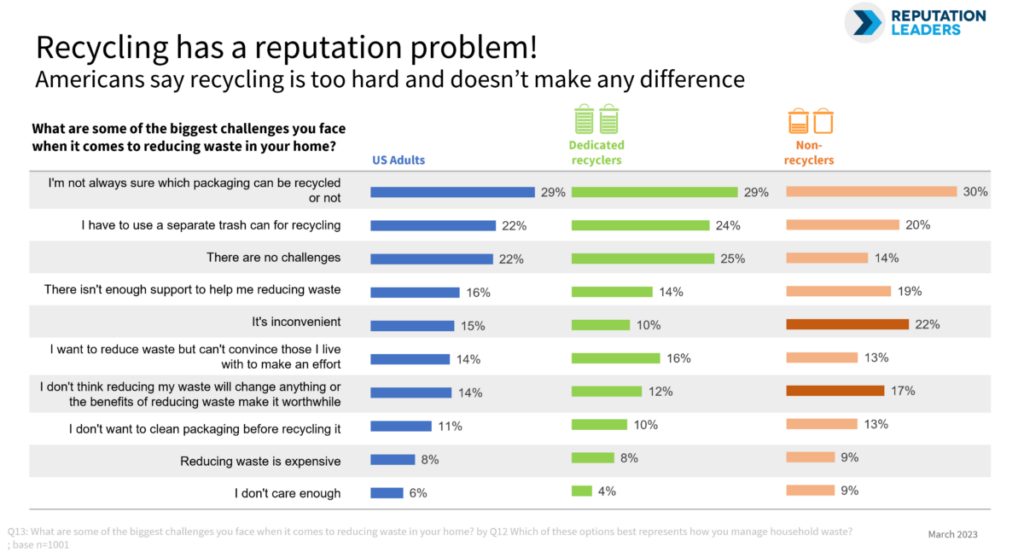
30 Mar Recycling is too much effort for many Americans.
Two-fifths (43%) of US adults still throw away most things instead of recycling them according to a survey of 1000 US adults in March 2023 by Reputation Leaders. These non-recyclers say recycling packaging is unclear, recycling is inconvenient, or they don’t believe recycling will change anything.
 Click here to see the full report as a pdf.
Click here to see the full report as a pdf.
According to the UN environment Programme, humanity generates an estimated 2.24 billion tons of trash (municipal solid waste) annually, of which only 55 percent is managed in recycling facilities. As mismanaged waste aggravates the triple threat of climate change, biodiversity loss, and pollution, it is important that all American citizens and businesses support better recycling behaviors.
To raise awareness, the UN announced the first annual International Day of Zero Waste on 30 March 2023. However, awareness must be followed by action.
We have three recommendations for US companies and officials who want to reduce waste and encourage recycling.
1. Make recycling clearer to understand and more convenient.
A third of Americans who try to recycle as much as possible say the biggest challenge is knowing what can and can’t be recycled. Manufacturers and packaging companies need to make it obvious what can be recycled and how.
For Americans who don’t recycle, four out of ten say the biggest barrier is the inconvenience. This includes tasks like having to separate their trash into separate bins or having to clean packages before they can be recycled.
2. Persuade non-recyclers that recycling can make a difference.
People need to believe that their recycling bin matters. 17% of people who aren’t recycling say that they don’t believe it will change anything or that the benefits make it worthwhile. This is a trust issue, where the onus is on brands and governments to prove that recycling is really taking place and also to show the positive impact of recycling.
3. Create recyclable, reusable products. It’s not just good sense, it’s good business.
Over half (56%) of American adults are more likely to purchase brands that can be easily recycled, repaired, repurposed, or reused. Designing reusable, durable products decreases production intensity and encourages consumers to alter unsustainable consumption patterns.
Reputation Leaders conducted their Reputation Pulse ahead of International Day of Zero Waste to help draw attention to this crisis.


